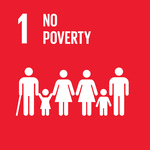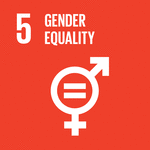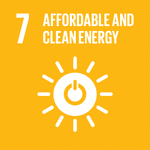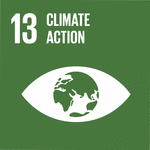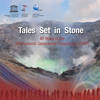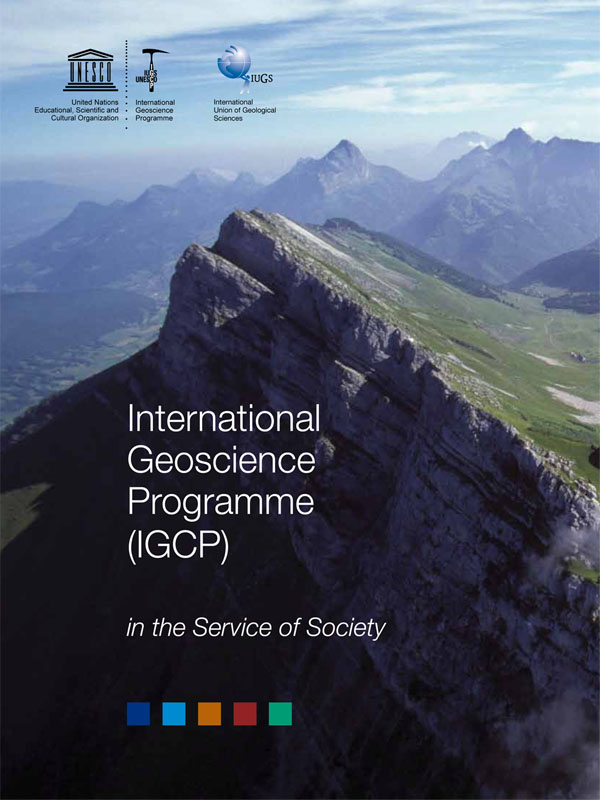The International Geoscience Programme and its contribution to the Sustainable Development Goals
Goal 1: End poverty in all its forms everywhere
- Especially target 1.4:
"By 2030, ensure that all men and women, in particular the poor and the vulnerable, have equal rights to economic resources, as well as access to basic services, ownership and control over land and other forms of property, inheritance, natural resources, appropriate new technology and financial services, including microfinance" - target 1.5:
"By 2030, build the resilience of the poor and those in vulnerable situations and reduce their exposure and vulnerability to climate-related extreme events and other economic, social and environmental shocks and disasters" - and target 1.a:
"Ensure significant mobilization of resources from a variety of sources, including through enhanced development cooperation, in order to provide adequate and predictable means for developing countries, in particular least developed countries, to implement programmes and policies to end poverty in all its dimensions"
IGCP´s scientific objectives include:
- Increasing our understanding of the geoscientific factors affecting the global environment in order to improve human living conditions.
- Developing more effective methods to find and sustainably exploit natural resources of minerals, energy and groundwater.
- Increasing our understanding of geological processes and concepts of global importance, including an emphasis on socially relevant issues.
- Improving standards, methods and techniques of carrying out geological research, including the transfer of geological and geotechnological knowledge between industrialized and developing countries.
Goal 4: Ensure inclusive and equitable quality education and promote lifelong learning opportunities for all
- Especially target 4.7:
"By 2030, ensure that all learners acquire the knowledge and skills needed to promote sustainable development, including, among others, through education for sustainable development and sustainable lifestyles, human rights, gender equality, promotion of a culture of peace and non-violence, global citizenship and appreciation of cultural diversity and of culture’s contribution to sustainable development"
IGCP aims to facilitate communication and exchange among scientists by bringing together different disciplines and countries on issues of common interest that improve standards, methods and techniques to carry out geoscience research, including the transfer of fundamental and applied knowledge between developed and developing countries.
The IGCP “Young Scientist Projects” support international cooperation between young scientists from developing and developed countries early in their careers. These projects must be led by researchers who have completed their PhD within 10 years and can demonstrate an affiliation to a research institute, university, geological survey or equivalent organization. The aim of this project type is to recruit and train young scientists to establish future cooperative projects.
Goal 5: Achieve gender equality and empower all women and girls
- Especially target 5.5:
"Ensure women’s full and effective participation and equal opportunities for leadership at all levels of decision-making in political, economic and public life"
High number of UNESCO IGCP projects are led by women earth scientists who are actively leading capability developments through the education of women Earth scientists.
Goal 6: Ensure availability and sustainable management of water and sanitation for all
- Especially target 6.6:
"By 2020, protect and restore water-related ecosystems, including mountains, forests, wetlands, rivers, aquifers and lakes"
UNESCO IGCP program “Hydrogeology theme” focuses understanding and managing both surface and groundwater systems, including sources, contamination, vulnerability and the history of water systems.
Goal 7: Ensure access to affordable, reliable, sustainable and modern energy for all
- Especially target 7.a:
"By 2030, enhance international cooperation to facilitate access to clean energy research and technology, including renewable energy, energy efficiency and advanced and cleaner fossil-fuel technology, and promote investment in energy infrastructure and clean energy technology"
UNESCO IGCP program “Earth Resources theme” focuses environmentally responsible exploitation of hydrocarbons, geothermal energy and water for the future well-being of society.
Goal 13: Take urgent action to combat climate change and its impacts
- Especially target 13.3:
"Improve education, awareness-raising and human and institutional capacity on climate change mitigation, adaptation, impact reduction and early warning"
UNESCO IGCP program “Global Change and Evolution of Life theme” supports scientific researches on Evidence collection from the Geological Record Changes in the Earth’s climate and the evolution of life which are preserved in the rock record.
Goal 17: Strengthen the means of implementation and revitalize the global partnership for sustainable development
- Especially target 17.6:
"Enhance North-South, South-South and triangular regional and international cooperation on and access to science, technology and innovation and enhance knowledge sharing on mutually agreed terms, including through improved coordination among existing mechanisms, in particular at the United Nations level, and through a global technology facilitation mechanism" - target 17.9:
"Enhance international support for implementing effective and targeted capacity-building in developing countries to support national plans to implement all the sustainable development goals, including through North-South, South-South and triangular cooperation" - target 17.16:
"Enhance the global partnership for sustainable development, complemented by multi-stakeholder partnerships that mobilize and share knowledge, expertise, technology and financial resources, to support the achievement of the sustainable development goals in all countries, in particular developing countries" - and target 17.17:
"Encourage and promote effective public, public-private and civil society partnerships, building on the experience and resourcing strategies of partnerships"
IGCP program address interdisciplinary research and capacity-building in the fields of geology and geophysics, including the sustainable management and development of the Earth’s mineral and energy resources.
The IGCP is successful example of scientific cooperation between a non-governmental organization (NGO) – the IUGS – and an intergovernmental organization – UNESCO. The IGCP brings together junior and senior geoscientists from less and more developed nations. Over the past 35 years, tens of thousands of scientists have actively taken part in IGCP projects; for many of them the Programme has been the gateway to a successful career in and beyond geoscience.

